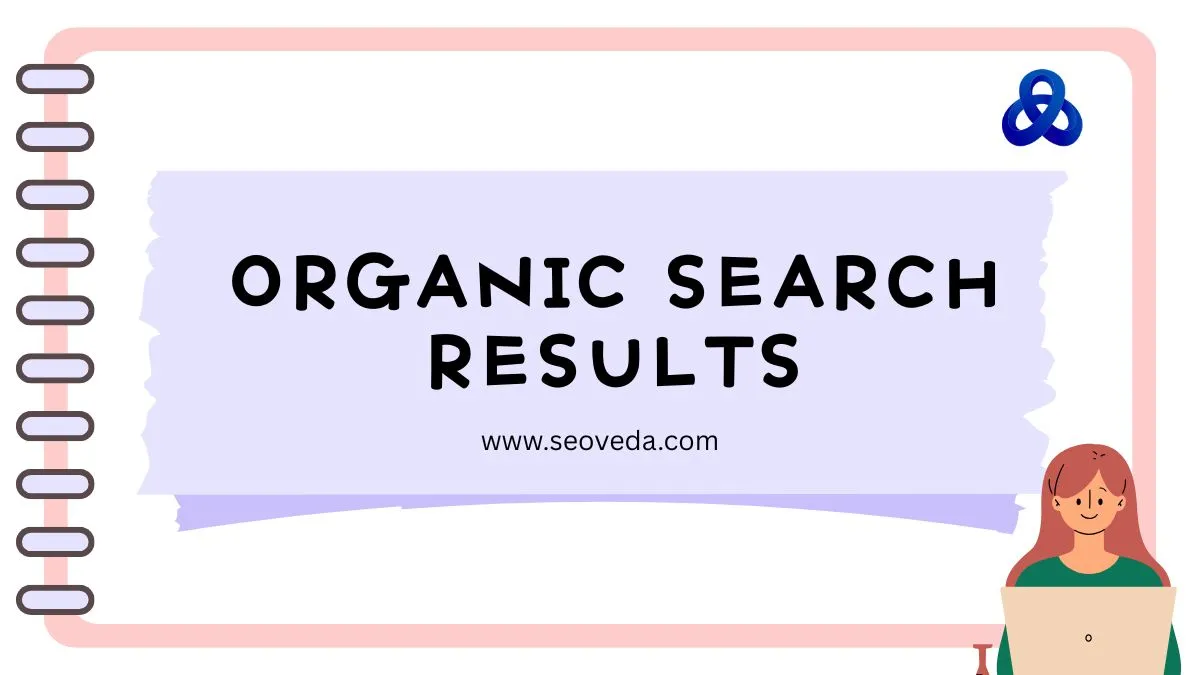Loading...
Loading...

Organic search results are the listings shown on the search engine results page (SERP) that are returned based on the search engine's understanding of content through its algorithms. Not paid placement.
Organic Search Results: These are the web pages that display in response to a user's search query based on relevance, authority, and quality, as determined by the search engine algorithm.
Organic results are solely related to organic techniques. The website is not paying for its placement, it earned its position by using search engine optimization (SEO) practices.
The search engine will review the content of web pages for relevancy to the user's query. The search engine evaluates the quality of the content, keywords & engagement metrics and, based on these factors, will determine what is the relevance for each.
Organic search results are ranked based on relevance and authority. Users are likely to engage with a website the higher they are ranked. A good goal would be making the first page of search results, and striving for the top 3.
Relevant keywords in the content, titles, and meta descriptions help search engines determine the context of the page.
Content that is informative regarding the subject, while being well written and engaging, is more likely to rank well. Search engines prioritize content that is more valuable to users.
The number and quality of backlinks (links from other domains to your content) can have a large impact on rankings. The quality of the authority from each link is particularly important.
Other factors that contribute to user experience are site speed, mobile-friendly sites, and ease of navigation, which all play a part in your organic rankings.
Technical SEO can also impact how crawlable or indexable your website is through site structure, schema markup, accessible URLs, and more.
Feature | Organic search results | Paid Search results |
Definition | Listings that appear based on relevance and quality, determined by search engine algorithms. | Listings that appear due to paid advertising; advertisers bid for placement. |
Cost | Free to appear, but requires investment in SEO efforts (content creation, backlinks, etc.). | Requires payment for each click (PPC) or impression; costs can vary significantly. |
Placement | Typically appears below featured snippets and ads, often on the first page of search results. | Usually appears at the top or bottom of the SERP, often marked as "Ad" or "Sponsored." |
Trust & Credibility | Generally perceived as more credible and trustworthy by users, as they are not paid placements. | May be viewed with skepticism; users often know these are advertisements. |
Longevity | Can provide long-term traffic benefits once established, but rankings can fluctuate. | Immediate visibility upon launching campaigns, but traffic stops when the budget runs out. |
Click-through rate ( CTR ) | Often has a higher CTR due to perceived credibility and relevance. | CTR can vary; it may be lower than organic results, but it can be optimized through ad copy and targeting. |
Time to Results | Takes time to build rankings and traffic; SEO is a long-term strategy. | Immediate results: traffic can start as soon as the campaign is live. |
Control over position | Less control over exact positioning; relies on SEO practices and competition. | Greater control over position and targeting; can adjust bids and ad copy to improve performance. |
Both organic and paid search results are important parts of digital marketing. Organic search aims to build long-term visibility and trust, while paid search provides immediate results and allows for targeted reach into a specific market. Most businesses will incorporate both organic and paid strategies to maximize their digital marketing goals.